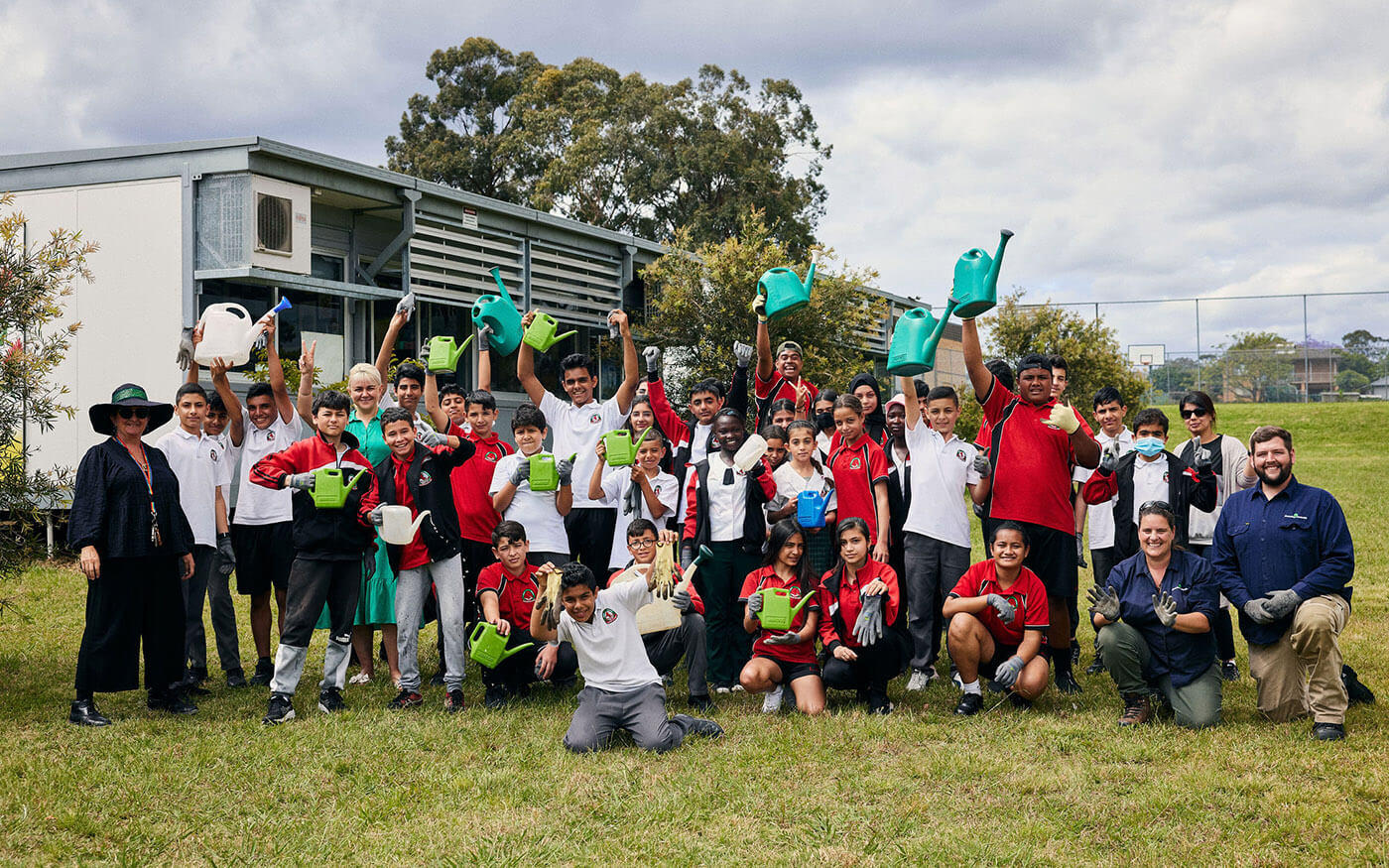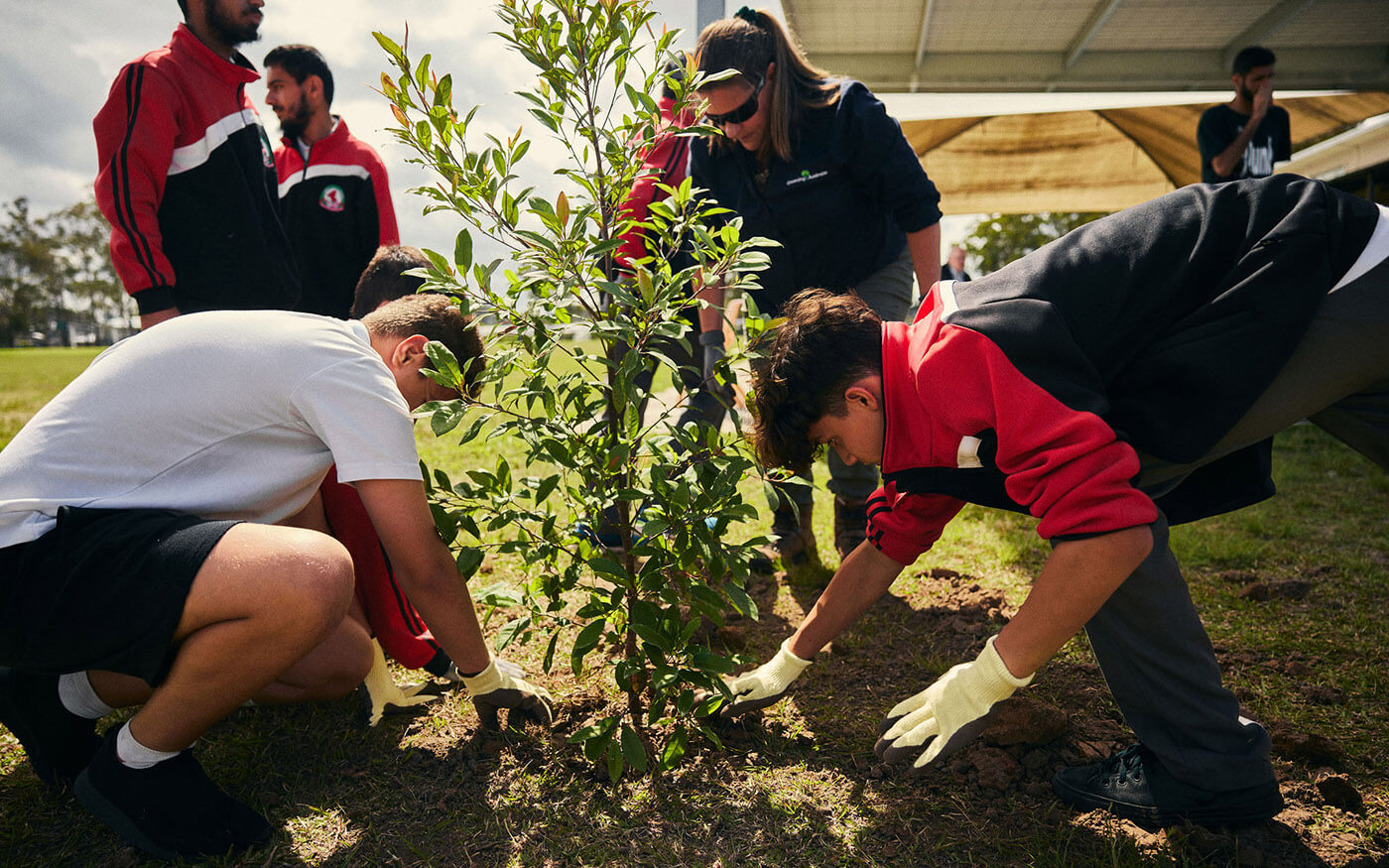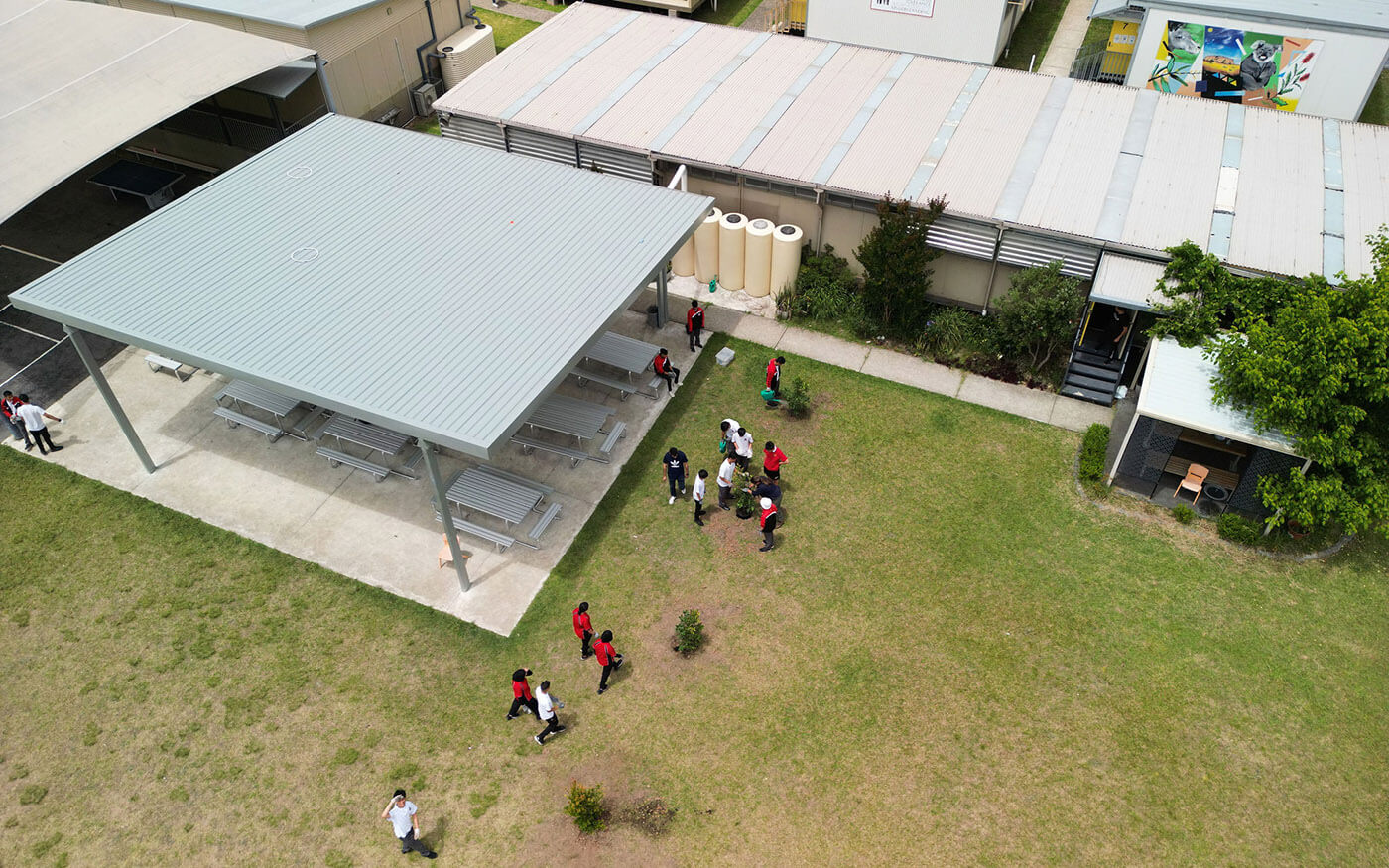Nature-based solutions help schools beat the heat

-
-
- Why we are upgrading our electricity system
- How we are transitioning our electricity system
- How NSW will benefit from the energy transition
-
- A long-term vision for locals
- The best office in the world
- The future of farming is here
- Renewables generates 100 new jobs for Western Sydney manufacturer
- The people behind NSW’s energy transition
- NSW ’s giant super battery is underway
- Unlocking opportunities for the people of Dubbo
- Meet Bridget from the Central-West Orana REZ
-
-
- Agreement between the state of NSW and Origin on its plans for Eraring power station
- NSW coal market price emergency
- Delivering a Gas Decarbonisation Roadmap
- NSW Embedded Network Action Plan
- NSW Transmission Planning Review 2025
- Network-to-network connection process
- Corrosion protection systems
- Demand response
- Electricity Market Operation Rules
-
- Review and reform
- Safeguard design
- Exemptions
-
-
-
- Air conditioner - eligibility
- Core eligibility
- Electric water heater replacement with a solar electric boosted water heater - eligibility
- Electric water heater replacement with an air source heat pump - eligibility
- Electric water heater replacement with an air source heat pump - eligibility
- Gas water heater replacement with a solar electric boosted water heater - eligibility
- Gas water heater replacement with an air source heat pump - eligibility
- Gas water heater replacement with an air source heat pump - eligibility
- HVAC - eligibility
- Heat pump water heater - eligibility
- Hot water heater - eligibility
- Install a new air source heat pump - eligibility
- Pool pump - eligibility
- Refrigerated cabinet - eligibility
- Solar battery - eligibility
- Solar battery - eligibility
- Solar battery eligibility landing
- Spare refrigerator or freezer - eligibility
- Ventilation or refrigeration motor - eligibility
-
- Air conditioner - certificates
- Electric water heater replacement with a solar electric boosted water heater - certificates
- Electric water heater replacement with an air source heat pump - certificates
- Electric water heater replacement with an air source heat pump - certificates
- Gas water heater replacement with a solar electric boosted water heater - certificates
- Gas water heater replacement with an air source heat pump - certificates
- Gas water heater replacement with an air source heat pump - certificates
- HVAC - certificates
- Heat pump water heater - certificates
- Hot water heater - certificates
- Install a new air source heat pump - certificates
- Pool pump - certificates
- Refrigerated cabinet - certificates
- Solar battery - certificates
- Solar battery certificates landing
- Spare refrigerator or freezer - certificates
- Ventilation or refrigeration motor - certificates
- Solar battery - certificates
-
-
- Administration and compliance
- Energy certificate schemes
- Gas network safety and operating plans
- Pipeline management plans
-
- Scaling up a thriving renewable fuel industry in NSW
- Going circular in clean energy
- Pipelines and Gas Supply Acts proposed updates - 2024
- Public consultation: Ministerial Statement of Expectations: Protecting NSW customers of embedded networks
- Solar emergency backstop
- ASP Scheme review
- Corrosion Protection Systems Regulation 2020
- Digital metering: improving service delivery in NSW
- Electricity Infrastructure Roadmap consultations
- Queensland-Hunter Gas Pipeline ATS
- Public lighting code
- Service and installation rules
Schools are a great place to start when it comes to showcasing the benefits of nature in cities. Giving students and teachers the opportunity to connect with nature allows them to feel the benefits firsthand and empowers them to take practical steps to help reduce urban heat in their schools.
Funded by the NSW Government through the Climate Change Fund, the Greening Our Cities program aims to lift urban tree canopy coverage to 40% by 2036. It partners with local councils and communities in Greater Sydney to plant and maintain trees in the local area.

Greening Australia saw the opportunity for schools to become involved in the program and created the Cooling the Schools initiative. They work with schools to connect children with nature through free native tree planting sessions, empowering them to create critical wildlife habitat, reduce urban heat and increase shade in their schools.

Greening Australia drew on research by Western Sydney University to identify the hottest 100 schools in Greater Sydney and developed an outreach program with the Department of Education to engage the schools most affected by urban heat. As part of the program, proposed planting sites were assessed and a garden designed with the school’s ground keeper. Once the plans were in place, the Greening Australia team delivered curriculum-aligned planting lessons with the children. Over 3 years, the initiative has worked with 130 schools, engaging with 9,713 students and planting 23,380 trees.
The initiative gives urban children the opportunity to get their hands dirty and learn about biodiversity and the important role trees have in our environment.

Cooling the Schools Program Manager, Nicola Masters explains that green learning environments also contribute to young people’s development, through formal structured activities (developing skills in subjects like science, technology, geography and mathematics) and informal play.
‘These plantings are designed to create cooler, greener, healthier and more climate resilient schoolgrounds, while enabling children to take climate action into their own hands. Seeing the children engage with nature is wonderful and their enthusiasm is inspiring,’ says Nicola.

The Cooling the Schools initiative is part of a larger project by Greening Australia, which has secured new funding from the NSW Government to plant 200,000 trees over the next 3 years in communities across Greater Sydney.